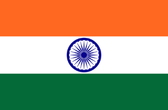
Call 0330 880 3600 Calls may be monitored or recorded. Opening Times.
- TRAVEL INSURANCE
- COVID-19 COVER
- More Options
- Help & Advice
- Existing Customers

Call 0330 880 3600 Calls may be monitored or recorded. Opening Times.

Need help?
UK Customer Services0330 880 3600*
Open Monday to Friday 9:00am to 6pm, Saturday 8:30am to 4pm and closed Sundays.
*Calls are recorded for training and quality purposes.

Official name: Republic of India
Capital city: New Delhi
Languages spoken: Hindi, English, plus 20+ regional languages
Population: Over 1.4 billion
Currency: Indian rupee (INR)
Time zone: GMT+5.5
Driving side: Left
Climate: Tropical in the south, temperate in the north, and alpine in the Himalayas - expect everything from scorching summers to snowy winters, with a dramatic monsoon season from June to September
India is one of the world’s most diverse and fascinating countries, blending ancient traditions with rapid modernisation. From the bustle of megacities like Delhi and Mumbai to tranquil backwaters in Kerala, the snowy peaks of the Himalayas to the deserts of Rajasthan, it’s a land of contrasts. The country is steeped in history, with landmarks such as the Taj Mahal and Jaipur’s forts, alongside thriving industries, a booming tech sector, and rich cultural festivals.
India stretches from the Himalayas in the north to the tropical shores of the Indian Ocean in the south. It shares borders with Pakistan, China, Nepal, Bhutan, Bangladesh, and Myanmar. Its varied terrain includes fertile plains, dense forests, deserts, and a 7,500km coastline. Natural hazards include monsoon flooding, cyclones, and occasional earthquakes.
India is served by multiple major international airports, including Delhi, Mumbai, Bengaluru, and Chennai. Domestic air travel is extensive, with budget airlines making it easy to hop between regions. Trains remain the backbone of Indian transport, ranging from overnight sleeper journeys to luxury tourist services. Buses, taxis, and rickshaws fill in the gaps, though road conditions can be challenging. Long-distance travel often requires patience, but it’s part of the experience.
Most visitors, including UK citizens, require a visa to enter India. An e-visa system is available for tourism, business, and medical visits, typically valid for 30 to 180 days depending on the category. Longer stays require traditional visas. The British High Commission is in New Delhi, with Deputy High Commissions in Mumbai, Bengaluru, Chennai, and Kolkata.
The Indian rupee (INR) is the official currency. ATMs are common in cities, though cash is still widely used, particularly in rural areas and small businesses. Credit and debit cards are accepted in hotels, restaurants, and shops in urban centres. Currency exchange is straightforward at banks and airports, but money changers often provide better rates.
Healthcare in India ranges from world-class hospitals in big cities to basic facilities in rural areas. Major cities are popular for medical tourism, offering advanced treatment at competitive prices. However, rural areas can lack reliable services. Travel insurance is essential, including cover for medical evacuation if needed. Tap water is generally unsafe to drink – bottled or filtered water is recommended – and be cautious with street food unless it’s freshly cooked and served hot.